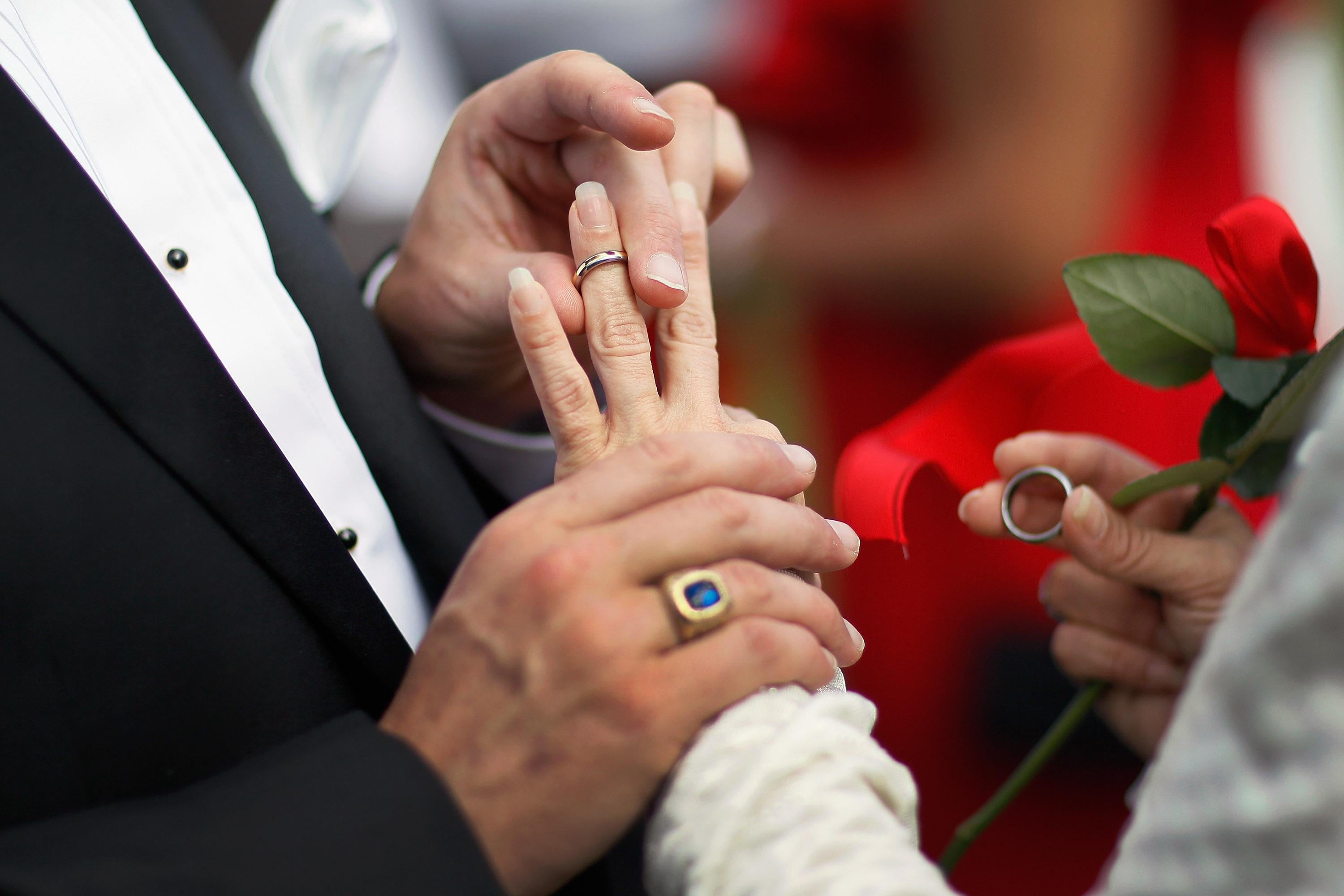Of all the ways that marriage is changing in our culture—opening up to same-sex couples, becoming more egalitarian—one major shift has managed to happen without much mainstream media commentary: Marriage, or the wedding at least, is also becoming more secular. The iconic image of the bride marching down a church aisle is turning into a distant memory for many Americans, replaced with weddings on beaches, in parks, in backyards, and increasingly officiated not by one’s minister or rabbi but by a dear friend who turned himself into a minister overnight by getting ordained online.
Becoming a fake minister has been a necessary part of the officiating job because many states require it. But those requirements received a big blow Monday, when a federal appeals court overturned such a law in Indiana, saying that the state must now allow “secular celebrants” to officiate weddings. From the Christian Science Monitor:
The three-judge panel ruled that Indiana’s marriage statute discriminated arbitrarily among religious and ethical beliefs, favoring certain religions over others and disfavoring members of humanist societies who wanted their marriages sanctified by someone holding the same beliefs.
Most of the efforts at expanding the power of secular celebrants to officiate weddings have happened in the legislatures, with Washington, D.C., and New Jersey passing laws to allow for the practice. Minnesota lawmakers introduced a similar bill in April, but it hasn’t moved in the legislature.
But in states where the religious right has more sway, allowing nonbelievers to officiate without pretending to be ministers is a much harder slog, which is possibly one reason why the Indiana lawsuit, filed by the secular organization Center for Inquiry, was dismissed in a district court in 2012, with the judge arguing that forcing nonbelievers to fake a religious faith in order to be able to marry people was no big thing. The appeals court judge, Frank Easterbrook, found this reasoning preposterous:
It is irrational to allow humanists to solemnize marriages if, and only if, they falsely declare that they are a “religion.” It is absurd to give the Church of Satan, whose high priestess avows that her powers derive from having sex with Satan, and the Universal Life Church, which sells credentials to anyone with a credit card, a preferred position over Buddhists, who emphasize love and peace. A marriage solemnized by a self-declared hypocrite would leave a sour taste in the couple’s mouths; like many others, humanists want a ceremony that celebrates their values, not the “values” of people who will say or do whatever it takes to jump through some statutory hoop.
As Easterbrook mentions, this ruling affects more than nonreligious people; it also covers religious minorities like Buddhists. I’d argue it goes even further than that, because while nearly 1 in 5 Americans is nonreligious, an even larger number don’t really feel any attachment to their official church—or are marrying someone outside of it—and therefore are drawn to secular weddings even if they call themselves Jewish or Christian. This ruling also helps loosen, as does the same-sex marriage movement, religion’s stranglehold on life-cycle events. While many people will always prefer to turn to a church for ceremonies, for those who want more power to define their life markers for themselves, this ruling in favor of secularism is a very welcome one.
